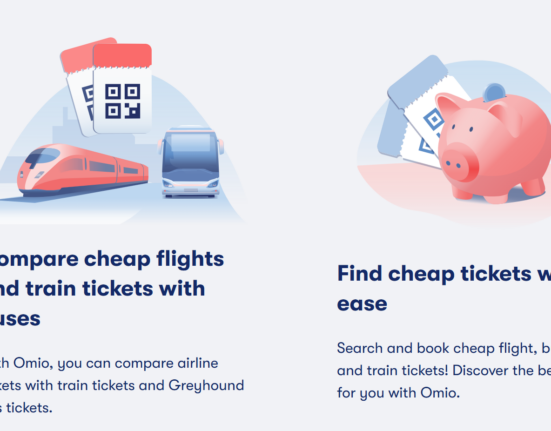Hype is a tricky thing. It can be a powerful tool for selling products and ideas, for getting readers excited about your blog posts or articles – but it can also be detrimental to your brand if you’re not careful. In this article, the author makes sure that everyone knows what hype means and how to better control it so you don’t lose too much on hype games!
What is Hype?
Hype is a word that has been thrown around a lot lately, especially in the world of technology. But what is hype, and how can we become more comfortable with it? In short, hype is an emotional response to new information or products. It can be a good thing – when it’s done well – because it can help promote new products or ideas. However, too much hype can have negative consequences. It can create unrealistic expectations in people about products or services, and may lead to disappointment when those expectations are not met. So how do we know when hype is happening, and how can we manage it? Here are four tips to help you stay safe and comfortable during the hype cycle: 1) Be aware of the signs of hype. There are many ways to identify hype, but some common signs include exaggerated claims, overuse of words like “revolutionary” or “groundbreaking,” and a focus on the sensational rather than the factual. 2) Don’t get caught up in the hype cycle. It’s easy to get swept up in the excitement of new information or products, especially if they’re something you’re interested in. Resist the temptation to overreact to what you see or hear – instead
Hype Definition
What is hype? Hype is a term used to describe an extreme or excessive level of excitement, enthusiasm, or expectation surrounding something. It can be a good thing, depending on the context. For example, when a new product is being introduced to the market, hype can help increase sales. On the other hand, hype can also be used to create an unrealistic expectation about a product or service and cause feelings of disappointment or frustration if it’s not delivered. How can you become more comfortable with hype? One way is to understand that hype is often based on facts and reality. When you read or hear about something, take the time to look at both the factual information and the associated hype. This will help you make informed decisions about whether or not to invest your time and money in something. Additionally, try to maintain a level of skepticism when it comes to anything new. This will help you avoid being swept away by the hype and allow you to form your own opinion about the product or service.
How to become more comfortable with the hype
When it comes to the internet, there’s no escaping the hype. Whether you’re an avid reader or simply use it for entertainment purposes, you’ve probably come into contact with hype before. But what is hype, and how can you become more comfortable with it? Simply put, hype is a feeling of excitement and anticipation surrounding a product, service, or event. It can be caused by anything from online reviews to word-of-mouth recommendations. And while some people may try to avoid it altogether, hype is actually a good thing in many cases. For example, if you’re an aspiring entrepreneur, you know that building a successful business is all about creating demand. And guess what? Hype is one of the best ways to do that. By artificially inflating the demand for your product or service, you create a situation where people are incentivized to buy it (or even try it out). In other words, hype can be your ticket to success. But beware: if you overdo it, your customers will eventually get tired of the hype and move on. So heed these three tips for becoming more comfortable with the hype: 1) Understand that
Avoiding a bubble
Bloggers often talk about the “hype machine” and how to avoid getting caught up in it. But what is hype, and why is it so dangerous? Simply put, hype is a powerful tool that can be used to attract attention to a product or service. It’s created by creating a sense of excitement around a product or idea, and using social media (especially Twitter) to amplify that excitement. The problem with hype is that it can become over-used and exaggerated. This creates a false sense of anticipation among fans of the product or service, which can then lead to disappointment when the reality doesn’t live up to expectations. In order to avoid becoming part of the hype machine, be aware of the signs that something is going too far. If something seems too good to be true, it probably is. Be sceptical of any claims that are made without evidence or proof. And remember: no one ever got rich off of hype alone!
Benefits of hype
There are a lot of benefits to hype. Here are four of the most important: 1. Hype can help you create or increase interest in something. 2. Hype can help you sell products or services. 3. Hype can help you expand your reach and grow your audience. 4. Hype can help you build your brand and reputation.
Conclusion
So, what is hype? Webster’s dictionary defines hype as “a strong impulse or enthusiasm for something.” In today’s society, hype is everywhere- from the latest smartphone release to the latest “discoverable” band. Whether you like it or not, hype is a part of our everyday lives. And, like it or not, we all need to learn how to deal with it. Here’s a quick break down of what hype is and how you can become more comfortable with it: Hype is essentially an emotion that’s created by giving someone a product, service, or event they want desperately. It can be very motivating, and often times we become so wrapped up in the excitement that we don’t actually take the time to evaluate the product or information objectively. This can lead to some pretty big mistakes- like overspending on something you didn’t need, investing in a company that won’t actually pay off, or following an entire trend without thinking through the consequences. But there are also plenty of opportunities for success when it comes to using hype responsibly. For example, if you know







